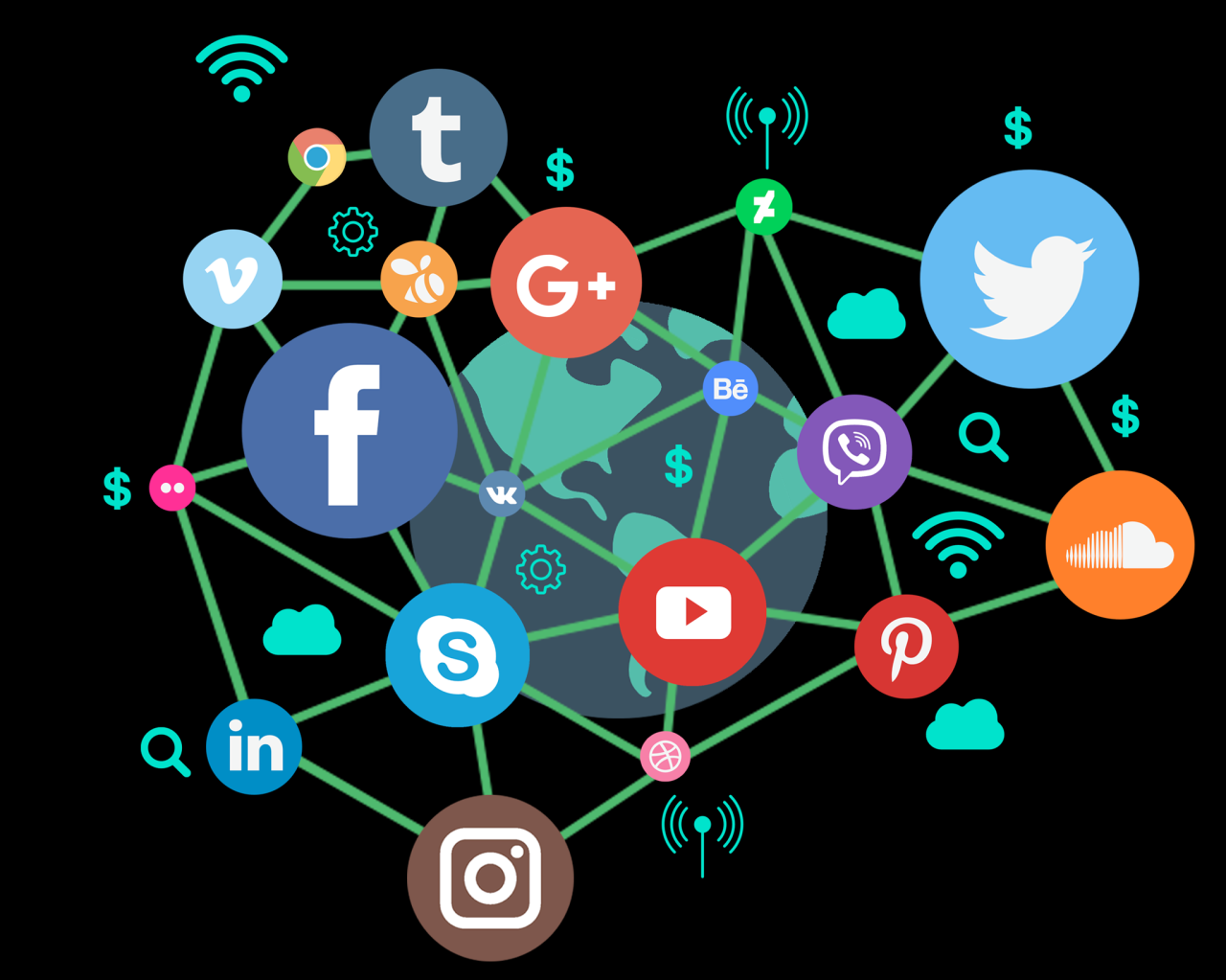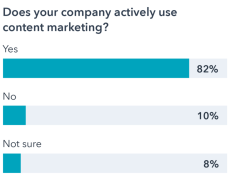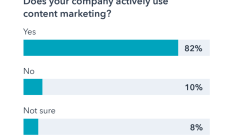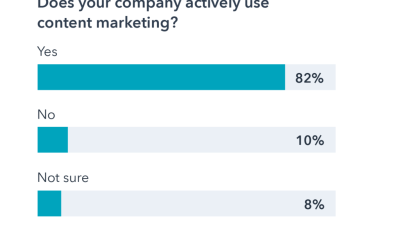Marketing Strategies That Drive Engagement and Sales in the Gaming Industry unveil the secrets to captivating gamers and boosting sales in a highly competitive landscape. Understanding the diverse demographics and preferences of players is essential for crafting tailored marketing approaches that resonate deeply. By leveraging innovative content marketing, social media engagement, and cutting-edge technology, gaming companies can foster strong connections with their audience and cultivate lasting brand loyalty.
With a focus on interactive storytelling, user-generated content, and strategic social media outreach, this guide explores the tactics that make a real impact. Additionally, insights into live events and tournaments demonstrate how to enhance brand visibility while the innovative use of AR and VR can elevate marketing efforts to new heights. By analyzing competitor strategies and implementing effective email marketing campaigns, gaming brands can refine their approach and drive unprecedented engagement.
Understanding the Gaming Audience
The gaming industry is a dynamic landscape shaped by diverse audiences, each with unique preferences and behaviors. Understanding these demographics is essential for developing effective marketing strategies that resonate with players. By analyzing the characteristics of gamers and their engagement metrics, businesses can tailor their offerings to enhance user experience and drive sales.The gaming audience comprises various demographics, including age, gender, and geographic location.
Recent studies indicate that approximately 48% of gamers are between the ages of 18 and 34, with a notable presence of female gamers, making up around 41% of the gaming population. This demographic diversity highlights the necessity for targeted marketing strategies that cater to different interests and gaming preferences.
Demographics of Gamers
The gamer demographic is multifaceted and continually evolving. Factors such as age, gender, and gaming preferences significantly influence their engagement and spending patterns.
- Age Breakdown:
The average gamer spans a wide age range, with a significant number of players aged between 18-34 years. This group is often the most engaged and willing to spend on in-game purchases and new titles. - Gender Representation:
Female gamers are a growing segment, accounting for nearly half of the gaming community. Understanding their preferences can lead to more inclusive marketing approaches. - Geographic Distribution:
Gamers are spread across the globe, with notable markets in North America, Europe, and Asia. Localization of content and marketing campaigns can significantly enhance engagement.
Psychological triggers play a pivotal role in enhancing player engagement. By tapping into these triggers, marketers can create compelling experiences that resonate with gamers on a deeper level.
Psychological Triggers in Gaming
In the context of gaming, understanding psychological triggers provides insights into what motivates players to engage and spend.
- Competition:
Competitive elements in games foster a sense of achievement and drive players to invest time and resources to improve their skills. - Community:
Social interaction through multiplayer platforms enhances player retention. Engaging with peers fosters a sense of belonging, encouraging continued participation. - Reward Systems:
Well-structured reward systems, such as loot boxes and achievement badges, tap into the human desire for rewards, driving players to engage more frequently.
“Understanding the gaming audience not only enhances engagement but also drives sales, creating a win-win for both developers and players.”
Engagement metrics vary across gaming genres, influencing how developers shape their content and marketing strategies.
Engagement Metrics by Gaming Genre
Different gaming genres attract distinct audiences, each with unique engagement patterns. Analyzing these metrics allows marketers to identify the most effective strategies for each genre.
- Action and Adventure Games:
Players tend to exhibit high engagement rates, often spending extended hours in immersive storylines and fast-paced gameplay. - Role-Playing Games (RPGs):
RPGs maintain prolonged engagement through character development and narrative depth, encouraging players to invest both time and money into their gaming experience. - Mobile Games:
Casual and hyper-casual mobile games typically see quick engagement spikes, driven by their accessibility and the integration of social features.
Understanding these insights about the gaming audience is crucial for creating tailored marketing strategies that resonate, engage, and ultimately convert players into loyal customers.
Content Marketing Strategies: Marketing Strategies That Drive Engagement And Sales In The Gaming Industry
In the vibrant and competitive world of gaming, effective content marketing strategies play a crucial role in driving engagement and boosting sales. One of the most powerful tools in a marketer’s arsenal is storytelling. By weaving captivating narratives around games, brands can create strong emotional connections with their audience, ensuring that players not only remember their games but also feel personally invested in them.Storytelling is essential in gaming marketing as it transforms a simple product into an experience.
It engages players by tapping into their emotions, fostering a sense of community and belonging. The gaming industry thrives on immersion, and effective storytelling can enhance this experience, making players feel like part of a grand adventure rather than mere consumers.
Effective Content Formats for Promoting Games
Various content formats can be utilized to promote games effectively. Each format serves a unique purpose and can cater to different aspects of a gaming campaign. Below are some impactful content formats that can engage audiences:
- Trailers: Dynamic game trailers captivate potential players, offering a visual glimpse of gameplay, graphics, and story elements. A well-produced trailer can go viral, generating buzz and anticipation.
- Live Streams: Engaging with audiences through live streaming platforms allows gamers to witness real-time gameplay, fostering a direct connection between developers and players. This format can humanize brands and create a loyal following.
- Behind-the-Scenes Content: Showcasing the development process through videos, blogs, or podcasts can create transparency and intrigue, making fans feel part of the journey and enhancing their investment in the game.
- Character Spotlights: Introducing key characters through dedicated content can deepen players’ connections to the story and enhance their emotional investment in the game world.
User-Generated Content in Marketing Campaigns
Incorporating user-generated content (UGC) into marketing strategies offers an authentic touch that resonates with potential players. UGC fosters community engagement and trust, as players are more likely to value the experiences and opinions of their peers over traditional advertising. There are several effective methods to utilize UGC:
- Social Media Integration: Encouraging players to share their experiences, gameplay clips, and fan art on platforms like Twitter, Instagram, and TikTok can amplify brand awareness and create a vibrant community around the game.
- Contests and Challenges: Organizing contests that invite players to create content, such as fan art or gameplay videos, not only promotes engagement but also incentivizes sharing, thus expanding reach.
- Testimonials and Reviews: Highlighting positive feedback and testimonials from players can reinforce credibility, showcasing real-world satisfaction and encouraging new players to join the community.
- Community Spotlights: Featuring players and their creations in official marketing materials can strengthen community bonds and encourage ongoing participation.
“User-generated content serves as a powerful marketing tool, promoting authenticity and trust within the gaming community.”
Social Media Marketing Techniques
In the dynamic world of gaming, social media serves as a powerful tool for brands to connect with their audience, promote products, and drive sales. With millions of users actively participating in gaming conversations online, leveraging social media platforms effectively can significantly enhance brand visibility and engagement.Several platforms are particularly well-suited for gaming promotion, each offering unique features that cater to the gaming community.
Understanding these platforms is crucial for developing an effective social media strategy.
Platforms for Gaming Promotion
Identifying the right platforms is the first step in executing a successful gaming marketing strategy. Each platform has distinct advantages that cater to different segments of the gaming audience. Here are the most effective options:
- Twitch: A live streaming platform primarily focused on gaming content, Twitch allows brands to engage with viewers in real-time through live broadcasts, chat interactions, and gaming tournaments.
- Discord: A community hub for gamers, Discord enables brands to create dedicated servers for direct communication, community building, and exclusive content sharing.
- Twitter: With its fast-paced environment, Twitter is ideal for sharing updates, engaging in conversations, and promoting events through hashtags and trends.
- Instagram: A visually-driven platform that allows gaming brands to share eye-catching images, trailers, and behind-the-scenes content, fostering community engagement through stories and posts.
- Facebook: With a broad user base, Facebook is effective for creating community groups, running targeted ads, and hosting events to promote games and engage audiences.
Engaging Gaming Communities on Social Media
Engagement within gaming communities is pivotal for fostering loyalty and driving sales. By utilizing various strategies, brands can create meaningful interactions that resonate with their audience. Here are effective strategies for engaging with gaming communities:
- Content Sharing: Regularly share high-quality content such as gameplay videos, trailers, and user-generated content to keep the community interested and involved.
- Interactive Posts: Use polls, quizzes, and contests to encourage participation and gather feedback from the community, creating a sense of involvement and excitement.
- Live Q&A Sessions: Host live sessions with developers or influencers to answer community questions, fostering transparency and a personal connection with the audience.
- Community Challenges: Create challenges or events that encourage users to post their experiences or accomplishments, reinforcing community ties and brand loyalty.
The Role of Influencers and Streamers in Driving Sales
Influencers and streamers play a crucial role in the gaming industry by shaping public perception and driving sales through their extensive reach and relatability. Their influence can significantly impact a brand’s marketing efforts.Incorporating influencer marketing into your strategy can yield substantial returns. Here’s how influencers contribute to sales initiatives:
- Authentic Recommendations: Influencers provide genuine reviews and recommendations, which help build trust among their followers and encourage purchase decisions.
- Exclusive Content: Collaborating with influencers to create exclusive content or early access to games can generate buzz and anticipation among fans, driving pre-orders and sales.
- Live Streaming: Influencers on platforms like Twitch can showcase gameplay, allowing potential customers to see the game in action, which may lead to immediate purchases.
- Cross-Promotion: Influencers can promote games across multiple social media channels, maximizing exposure and reaching diverse audiences.
Leveraging Live Events and Tournaments
The gaming industry has witnessed a seismic shift in how brands can engage with their audience, and live events and tournaments have emerged as a powerful tool for brand visibility and community engagement. These events not only bring players together but also enhance brand recognition, making them an invaluable strategy for marketers in the gaming sector.Organizing engaging live events requires careful planning and execution.
Key elements include venue selection, sponsorship opportunities, and promotional activities that resonate with the gaming community. A well-structured event can foster a sense of community, enhance player loyalty, and create unique experiences that generate buzz around the brand.
Benefits of Hosting Gaming Tournaments
Hosting gaming tournaments offers numerous benefits that can greatly enhance brand visibility. These tournaments serve as a platform to showcase games, attract new players, and create a community atmosphere.
- Increased Brand Exposure: Tournaments draw large audiences both online and offline, providing brands with substantial exposure through live broadcasts and social media coverage.
- Enhanced Community Engagement: These events foster interaction among players, fans, and the brand, creating a loyal customer base.
- Content Creation Opportunities: Tournaments generate a wealth of content, including highlights, interviews, and player experiences, which can be leveraged for marketing campaigns.
- Networking with Influencers: Collaborating with streamers and influencers during tournaments can amplify reach and credibility.
Organizing Engaging Live Events
To organize successful live events that attract players, several factors must be considered. These include the concept of the event, marketing strategies, and the choice of venue.
- Clear Objectives: Define what the event aims to achieve, whether it’s launching a new game, building community, or generating sales.
- Strategic Partnerships: Collaborating with event organizers and sponsors can enhance the event’s reach and provide necessary resources.
- Interactive Experiences: Incorporating activities like meet-and-greets with developers, gaming workshops, or cosplay contests can enhance player engagement.
- Effective Promotion: Utilize social media, gaming forums, and email marketing to create buzz and drive attendance.
Successful Partnerships Between Game Developers and Event Organizers
Several successful collaborations highlight how game developers and event organizers can create unforgettable experiences that resonate with audiences.
- ESL and Blizzard Entertainment: Their partnership for the Overwatch League brought together global audiences and showcased competitive play, leading to increased game popularity.
- PAX (Various Developers): This series of events has successfully brought developers together with fans, allowing for direct interaction and feedback.
- League of Legends World Championship: Riot Games’ collaboration with various event organizers has turned this annual tournament into a massive cultural phenomenon, drawing millions of viewers worldwide.
“Live events are not just gatherings; they are a celebration of community, competition, and creativity, providing unparalleled opportunities for brands in the gaming industry.”
Innovative Use of Technology in Marketing
Technology continues to revolutionize the gaming industry, providing marketers with innovative tools to enhance their strategies and engagement. Among the most transformative technologies are Augmented Reality (AR) and Virtual Reality (VR), which offer immersive experiences that can captivate gamers and drive sales. By integrating cutting-edge technologies into marketing efforts, brands can create unique and memorable interactions that resonate with their audience.
Role of AR and VR in Enhancing Marketing Efforts, Marketing Strategies That Drive Engagement and Sales in the Gaming Industry
AR and VR serve as powerful mediums that allow marketers to present their games in an engaging and interactive way. These technologies create a virtual space where players can explore game environments and features before making a purchase. For example, a popular AR campaign by Pokémon GO allowed players to interact with characters in their real-world environments, significantly boosting player engagement and sales.
“AR and VR create immersive worlds that transform how players interact with games and brands.”
Tech Tools that Can Boost Gamer Engagement
Incorporating the right technology tools is essential for enhancing gamer engagement. Below is a list of essential tech tools that can amplify your marketing efforts within the gaming community:
- Chatbots: Automated assistants that enhance customer service and support by providing instant responses to inquiries.
- Analytics Tools: Platforms like Google Analytics and Mixpanel that provide insights into gamer behavior and preferences, enabling targeted marketing strategies.
- Influencer Marketing Platforms: Tools that connect brands with gaming influencers to expand reach and credibility.
- Social Listening Tools: Applications that monitor social media for brand mentions and sentiment analysis, helping to tailor marketing messages.
- AR Development Kits: Software like ARKit and ARCore that enables brands to create immersive AR experiences tailored to their games.
Incorporating Gamification into Marketing Strategies
Gamification seamlessly integrates game-like elements into marketing strategies, fostering engagement and retention. By adding points, rewards, and challenges, brands can encourage players to interact with their content and share their experiences. For instance, loyalty programs that reward gamers for purchases or social shares can significantly increase brand loyalty and customer lifetime value.
“Gamification transforms mundane marketing interactions into engagements that feel rewarding and enjoyable.”
An example of successful gamification can be seen with the Starbucks Rewards program, where customers earn stars for purchases that can be redeemed for free drinks and exclusive offers. This approach not only bolsters customer loyalty but also creates a community around the brand, driving both engagement and sales.
Email Marketing for Gaming Companies
Email marketing remains one of the most powerful tools in a gaming company’s arsenal. It allows for direct communication with gamers, fostering engagement, loyalty, and ultimately driving sales. To effectively capture the attention of your audience, crafting engaging email campaigns tailored to gamers is essential.Developing a successful email marketing strategy starts with understanding your audience and how they interact with your brand.
From game launches to special promotions and community events, an effective email campaign can make all the difference. This section will explore actionable tips for creating captivating email content, share successful strategies from industry leaders, and discuss the importance of segmenting email lists to enhance engagement.
Tips for Crafting Engaging Email Campaigns
In order to create emails that resonate with gamers, consider the following strategies to enhance engagement:
- Personalization: Address recipients by their name and tailor content based on their gaming preferences and behaviors. This creates a sense of connection and relevance.
- Compelling Subject Lines: Use intriguing and fun subject lines that spark curiosity, encouraging opens. Examples include “Unlock Exclusive Content!” or “Your Next Adventure Awaits!”
- Visually Appealing Design: Incorporate vibrant graphics, game art, and animations that reflect the gaming culture, ensuring the email is not just informative but also visually stimulating.
- Clear Call to Action: Guide recipients on what to do next with clear and attractive buttons such as “Play Now,” “Join the Tournament,” or “Get Your Free Skin!”
- Engaging Content: Share game updates, behind-the-scenes stories, player spotlights, and tips that add value and enhance the gaming experience.
Examples of Successful Email Marketing Strategies
Leading gaming companies have effectively utilized email marketing to drive engagement and sales. Here are some noteworthy examples:
- Epic Games: They frequently send out personalized emails featuring tailored recommendations based on players’ past purchases, engaging content about new game updates, and exclusive in-game items.
- Riot Games: Known for their League of Legends brand, their email campaigns often include countdowns to major events, sneak peeks of upcoming champions, and community-driven content that resonates with their audience.
- Nintendo: Their newsletters not only announce new game releases but also provide exclusive access to game trials, ensuring that players feel they are part of an insider community.
Segmenting Email Lists for Better Engagement
Segmentation is key to ensuring that your email marketing efforts are as effective as possible. By categorizing your audience based on specific criteria, you can send more relevant messages that lead to higher engagement rates. Here are some effective segmentation strategies:
- Behavioral Segmentation: Group users based on their in-game behavior, such as frequent visitors, recent purchasers, or players who have been inactive for a while. This allows you to tailor your messages accordingly.
- Demographic Segmentation: Consider age, gender, location, and interests to curate content that appeals to various segments of your audience.
- Preference-Based Segmentation: Allow users to select their interests during sign-up, enabling you to send targeted content about specific game genres or events that they are most passionate about.
- Engagement Level Segmentation: Differentiate between highly engaged users and those who are less responsive, adjusting your messaging strategy to re-engage the latter group.
“Effective email marketing is not just about selling a product; it’s about creating a community and providing value to gamers.”
Analyzing Competitor Strategies

In the ever-evolving gaming industry, understanding your competitors is pivotal in crafting effective marketing strategies. Analyzing how similar companies engage with their audience and the tactics they employ can provide valuable insights that inform your own methods. This segment dives into competitor strategies, highlighting the importance of identifying key players and assessing their marketing effectiveness.
Identifying Key Competitors and Their Marketing Tactics
In the gaming landscape, several major companies stand out as key competitors, each employing distinct marketing tactics that resonate with their target audiences. Recognizing these players and understanding their approach is essential for any gaming company aiming to enhance its market presence. Notable competitors in the gaming industry include:
- Electronic Arts (EA): Known for their dynamic marketing campaigns that often include celebrity endorsements, EA leverages high-profile partnerships to enhance brand visibility.
- Activision Blizzard: Their use of storytelling and immersive content in promotions, particularly around franchises like Call of Duty, captivates a broad audience while fostering community engagement.
- Ubisoft: Ubisoft employs an extensive social media strategy, utilizing platforms like Twitch and YouTube to showcase gameplay and create buzz around new releases through live streams and interactive content.
- Epic Games: The strategic use of Fortnite as a marketing tool, including cross-promotions with major brands and events, exemplifies how gaming can transcend traditional marketing boundaries.
Comparison of Successful Marketing Campaigns
Examining successful marketing campaigns from leading gaming companies reveals diverse strategies that yield impressive results. By comparing these campaigns, one can identify effective elements that can be adapted for other gaming brands. For instance, the launch of “Fortnite” by Epic Games was not just about the game itself; it included a multi-platform marketing approach featuring social media engagement, influencer partnerships, and viral content that created a cultural phenomenon.
In contrast, the marketing strategy for “The Last of Us Part II” by Naughty Dog focused on emotional storytelling and audience connection through trailers and behind-the-scenes content, fostering a sense of anticipation and community involvement.
Assessing the Effectiveness of Competitor Marketing Strategies
To evaluate the effectiveness of a competitor’s marketing strategies, various metrics and analytical tools can be utilized. Understanding which metrics indicate success is crucial for implementing data-driven decisions in your own strategy. Some critical evaluation methods include:
- Engagement Metrics: Analyzing likes, shares, comments, and overall engagement on social media posts can indicate how well a campaign resonates with its audience.
- Sales Growth: Monitoring sales data following marketing campaigns helps determine the direct impact of promotional activities on revenue.
- Brand Sentiment Analysis: Utilizing tools to gauge public sentiment surrounding a brand can provide insights into how marketing efforts are perceived by the target audience.
- Web Traffic Analysis: Tools like Google Analytics can track increases in website visits during promotional periods, revealing the effectiveness of outreach efforts.
Effective marketing in the gaming industry hinges on a deep understanding of competitor strategies, allowing for informed decision-making and strategy refinement.
Building Brand Loyalty Among Gamers
In an industry as dynamic and competitive as gaming, fostering brand loyalty is crucial for long-term success. Gamers are discerning consumers, often deeply engaged with the products they love. By implementing effective loyalty strategies, brands can cultivate a dedicated fanbase that not only contributes to sales but also acts as brand ambassadors within the gaming community. Creating loyalty programs tailored to the gaming audience involves understanding their preferences and behaviors.
Gamers value recognition, rewards, and community engagement, which can enhance their overall experience and attachment to a brand. A well-structured loyalty program can incentivize repeat purchases and encourage player retention.
Loyalty Program Strategies
Implementing a loyalty program that resonates with gamers requires specific strategies focused on engagement and interaction. The following elements are essential in crafting a compelling loyalty program:
- Tiered Rewards Structure: Establish levels of loyalty where gamers can unlock exclusive rewards based on their engagement and spending. This can range from in-game currency to special items or early access to new releases.
- Gamification: Incorporate game-like elements into the loyalty program, such as challenges, missions, or achievements that players can complete to earn rewards, thereby enhancing their motivation to participate.
- Personalized Offers: Leverage data analytics to create tailored promotions that reflect individual gamer preferences, thus making them feel valued and understood.
- Exclusive Content: Providing members with access to exclusive in-game content, cosmetics, or events can incentivize loyalty and create a sense of belonging.
- Community Engagement: Encourage players to participate in community events or forums where they can share their experiences and earn loyalty points, fostering a stronger connection to the brand.
Importance of Community Building
Community plays a significant role in driving customer loyalty in the gaming sector. A well-nurtured community not only strengthens the bond between gamers and the brand but also enhances the overall gaming experience. Building a community can be achieved through various initiatives, including:
- Online Forums and Discord Servers: Create spaces for gamers to interact, share strategies, and provide feedback, reinforcing their connection to the brand.
- Social Media Engagement: Actively engage with fans on social media platforms by sharing updates, hosting Q&As, and encouraging user-generated content.
- Collaborative Events: Organize events such as game nights or tournaments that foster teamwork and interaction, promoting a sense of camaraderie among players.
Examples of Successful Loyalty Initiatives
Several gaming companies have successfully implemented loyalty initiatives that serve as benchmarks in the industry. Key examples include:
- Riot Games’ Valorant: This game features a robust loyalty program that rewards players with skins and in-game currency through their playtime and participation in community events.
- Nintendo’s My Nintendo Program: Nintendo has cultivated loyalty through a point-based system where players earn rewards by engaging with games, visiting stores, and participating in promotional events.
- Epic Games Store: By offering free games and exclusive content, Epic has successfully built a loyal user base that consistently returns for new offerings.
In the rapidly evolving gaming industry, brands that prioritize loyalty through innovative programs and community building are likely to see significant benefits in terms of consumer retention and brand advocacy. By understanding what gamers value and implementing strategies that resonate with them, companies can create a lasting connection that transcends mere transactions.













